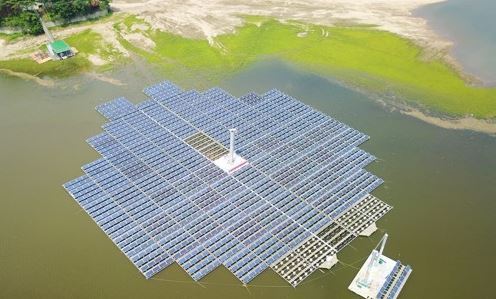South Korea's carbon dioxide emissions rose 1.3 percent in 2016 from the previous year, industry data showed Sunday, as the country steps up efforts to curb the release of greenhouse gases cited for causing global warming.
 |
(Yonhap) |
According to Enerdata, an international energy consulting firm, Asia's fourth-largest economy released some 588 million tons of CO2 into the atmosphere last year, compared to 580 million tons tallied for 2015.
The independent findings are supported by separate numbers by the U.S. Energy Information Administration last year that claimed South Korea's CO2 output has been increasing and will continue to do so till 2040.
The agency, which calculates emissions using its own standards, said the CO2 released by the Northeast Asian country may reach 394 million tons in 2040, from 281 million tons reported in 2012. This represents an annual increase rate of 1.2 percent.
Such a gain is significantly higher than the 0.1 percent annual increase predicted for countries belonging to the Organization for Economic Cooperation and Development in the same time period.
The latest data, meanwhile, is seen as putting more urgency on Seoul's efforts to reduce its dependence on fossil fuel to meet its energy needs. The new Moon Jae-in government that took office in May has vowed to retire old coal-fired thermal power plants as well as commercial nuclear power reactors that hit their operational life cycles.
The president had already ordered the temporary halt of operations for 10 thermal power plants to cope with excessive fine dust.
His administration has made clear it will make the country less dependent on coal and oil, and instead meet more of its energy needs through clean, renewable means like solar and wind power.
Related to the rise in emissions, Hyundai Research Institute, a local think tank, said while the release of greenhouse gases tend to go up with economic growth, it does plateau after reaching a certain point.
It said that emissions seem to be linked with the per capita gross domestic product of a country.
HRI's latest report on growth and its relations to the environment, showed that while emissions rose steadily when per capita GDP grew from US$5,000 to $15,000, the increase slowed considerably from $20,000 onwards at least in the case of the United States and European Union.
"The findings showed that while growth does cause emissions to go up, after a certain point, social pressure for a cleaner environment brings about concerted effort to control the release of greenhouse gases," it said.
This trend could affect South Korea's emission levels as its per capita GDP has topped the $20,000 mark some time ago and is striving to reach the $30,000 mark in the coming years. (Yonhap)








